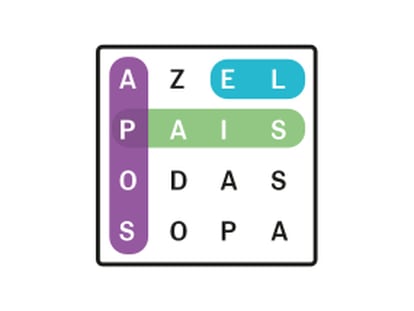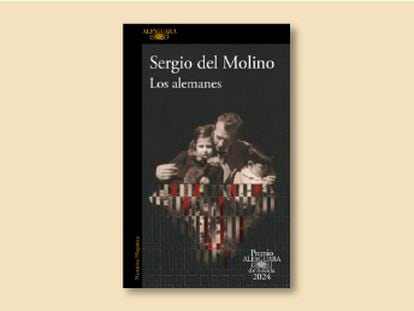Cable en el que el candidato presidencial de Guatemala denuncia supuestas conspiraciones con funcionarios norteamericanos
| ID: | 170070 |
| Date: | 2008-09-16 17:26:00 |
| Origin: | 08GUATEMALA1163 |
| Source: | Embassy Guatemala |
| Classification: | CONFIDENTIAL |
| Dunno: | 08GUATEMALA759 08GUATEMALA771 |
| Destination: | VZCZCXYZ0000 RR RUEHWEB DE RUEHGT #1163/01 2601726 ZNY CCCCC ZZH R 161726Z SEP 08 FM AMEMBASSY GUATEMALA TO RUEHC/SECSTATE WASHDC 6092 INFO RUEHZA/WHA CENTRAL AMERICAN COLLECTIVE RUEAIIA/CIA WASHDC RHEHNSC/NSC WASHDC |
C O N F I D E N T I A L GUATEMALA 001163 SIPDIS E.O. 12958: DECL: 09/04/2018 TAGS: PGOV, SNAR, KCRM, PINR, GT SUBJECT: AMBASSADOR DISCUSSES RULE OF LAW WITH OPPOSITION LEADER OTTO PEREZ MOLINA REF: A. GUATEMALA 759 B. GUATEMALA 771 Classified By: Ambassador Stephen G. McFarland for reasons 1.4 (b&d). Summary ------- 1. (C) 2007 presidential runner-up General Otto Perez Molina told the Ambassador September 4 that he is concerned about Guatemala's deteriorating security situation and the GOG's apparent inability to follow through on institutional reforms. The state is institutionally unprepared to confront rising security challenges posed by narcotrafficking, corruption, and violent crime. President Colom announced a substantial expansion of the army, but the GOG's draft budget makes no provision for such an expansion. Perez and his party's bench leader, Roxana Baldetti, also discussed the GOG's social agenda and the ongoing congressional finance scandal. Baldetti predicted that Congress would pass the pending Freedom of Information Bill. Greater political will is needed to address rampant criminal penetration of the state's rule of law institutions. End Summary. Security and Police Reform -------------------------- 2. (C) The Ambassador, DCM, and Pol/Econ Couns met September 4 with 2007 presidential runner-up General Otto Perez Molina and the bench leader of his Patriot Party, Roxana Baldetti. The Ambassador stated that the security situation and narcotrafficking had gotten much worse in the last five years; the Ambassador suggested that Guatemalans need to transcend political differences. The government, political parties, and civil society should collaborate in developing a common security vision and strategy to confront this national exigency. Allowing partisan differences to hamstring rule of law reform efforts worked to the criminals' advantage. Perez and Baldetti agreed that a united approach bringing together all significant political actors was urgently needed. They asserted that narcotraffickers had been allowed to gain a firm foothold in the country under the previous Berger Government, and ageed that security conditions had deteriorated shaply under Berger. That trend was now continuing under Colom. Deteriorating security could favor Perez's political prospects for another presidential run in 2011, Baldetti said, given his security focus. However, the country would pay a high price in the meantime. 3. (C) All state rule of law organs had been thoroughly penetrated by narcotraffickers and other organized criminals, Perez and Baldetti said. Continued cleansing of police ranks was needed, but the police should not attempt to reform themselves. Rather, the intervention of an outside party is needed. Perez said that part of Guatemala's crime problem could be traced to the inadequacy and criminal penetration of investigative organs, particularly the PNC's Directorate for Criminal Investigations (DINC), which he asserted was implicated in the February 2007 murders of three PARLACEN deputies and other crimes. The new General Directorate for Civilian Intelligence (DIGICI) of the Ministry of Government has not yet produced any results. 4. (C) Perez said Guatemala has just 300 police criminal investigators, none of whom is specialized, assigned to perform more than 200,000 pending criminal investigations. This number is clearly inadequate, and pales in comparison to the approximately 2,500 official criminal investigators in El Salvador. Perez said that his party, working together with the governing UNE, had drafted a bill for law enforcement overhaul. Relevant actors, such as (now deceased) Minister Qoverhaul. Relevant actors, such as (now deceased) Minister of Government Gomez and former Attorney General Florido had provided inputs to the plan. The bill, now pending in Congress, would provide for, among other measures, establishment of a new criminal investigation unit under the direction of the Attorney General, rather than the National Police. Perez and Baldetti said, however, that the UNE government now appears to have disowned the reform plan, and Minister of Government Jimenez has made clear he has no intention of pursuing it. Without UNE support, the measure is unlikely to pass. 5. (C) (Note: Embassy did not support creation of the proposed new investigative unit because it would be redundant to the DINC and be at odds with the new Organized Crime Law and other elements of the legal architecture underpinning rule of law institutions. We have urged the GOG to focus on vetting and reforming the DINC rather than creating a new unit. End Note.) No Money for Announced Army Expansion ------------------------------------- 6. (C) President Colom's September 1 announcement of plans to expand the army from 15,500 soldiers to approximately 25,000 by the end of 2010 appeared to have been aimed at assuaging citizens' concerns about security, Perez and Baldetti observed. Compared to the PNC, the army is relatively uncorrupted, and enjoys much greater public confidence than does the PNC. However, the GOG's draft 2009 budget makes no allowance for any expansion of the army, so Perez and Baldetti concluded that Colom's announcement was mere rhetoric. (Note: Embassy's own review of the draft 2009 budget identified no additional funding for the army, and the Chief of the Army Joint Staff told PolMil Officer that he knew nothing of a planned expansion. End Comment.) Perez and Baldetti also noted that any plans to continue or expand the army's active support for law enforcement operations would likely draw condemnation from some elements of the international community, particularly human rights NGOs. Finance Scandal: Not Me ----------------------- 7. (C) Regarding the ongoing congressional finance scandal, Perez said the entire institution had been tainted in the public eye, and not just the culpable individuals (ref a). The challenge ahead for Congress is to recover some of its lost legitimacy. Baldetti said she and her party did not believe that former President of Congress Eduardo Meyer had personally stolen any substantial portion of the approximately $11.2 million that is now missing from Congress' coffers. She said, however, that in his capacity as president, Meyer was charged with being the principal custodian of congressional funds. He therefore must bear personal responsibility, to include facing judicial proceedings. In contrast to Meyer's situation, it was clear that his predecessor, Ruben Dario Morales, had indeed stolen congressional funds. The Superintendency of Banks' public revelation that Perez had received a personal loan from MDF manager Raul Giron was a politically motivated smear attempt, Baldetti maintained, asserting that the loan was in no way related to the money misappropriated by Congress. Asked whether she was considering running for President of Congress for 2009, Baldetti said she was, and that the election could occur as early as mid-October. Congress to Pass Freedom of Information Bill -------------------------------------------- 8. (C) Baldetti predicted that the Freedom of Information Bill, now in its third and final reading, would pass. Parties that had reservations about the bill, such as the FRG, would pay too high a political price for making their opposition publicly known, and so would therefore ultimately vote in favor, she predicted. However, given Guatemala's prevailing culture of lack of respect for laws, and authorities' regular failure to enforce laws, she opined that the law would achieve little in practice. It was in any case redundant to Article Four of the Guatemalan Constitution, which already provides for free citizen access to government proceedings and records, Baldetti said. Perez opined that the law might nonetheless have some positive impact. CCT Fomenting Dependency ------------------------ 9. (C) Baldetti said that PP was supportive of some elements of the GOG's social agenda, and indeed had planned to implement a Conditional Cash Transfer (CCT) program similar to the Colom Government's "My Family Progresses" program if elected (ref b). However, PP was concerned that the GOG's Qelected (ref b). However, PP was concerned that the GOG's program had become exclusively a vehicle for providing handouts without providing accompanying incentives for self-help. As a result, Baldetti believed the program is fomenting a culture of dependency among its recipients. Responding to Baldetti's point, the Ambassador noted that the USG would continue its support for many GOG social initiatives. Comment ------- 10. (C) From the opposition, Otto Perez Molina and his Patriot Party continue to highlight deteriorating security as a top citizen concern. While the GOG has taken some steps to remedy institutional deficiencies, more political will is needed. Criminal penetration of the state's rule of law and security institutions is generalized, and public confidence in those institutions low (with the exception of the army). Perez's loan from MDF manager Giron reportedly was drawn against the same account into which Congress' funds were deposited, leaving some to doubt his assertion that he had nothing to do with the ongoing finance scandal. While Baldetti's observation that Article Four of the Constitution already provides for public access to government documents and proceedings is accurate, the Freedom of Information Bill would provide needed specificity and establish sanctions. Embassy continues to urge congressional leaders to pass the bill, as it would be a step toward the greater institutional transparency Guatemala so badly needs. McFarland |
Traduce este documento »
Traducción automática. Puede que el texto traducido no sea fiel al original
Únete a EL PAÍS para seguir toda la actualidad y leer sin límites.
Suscríbete_










































































